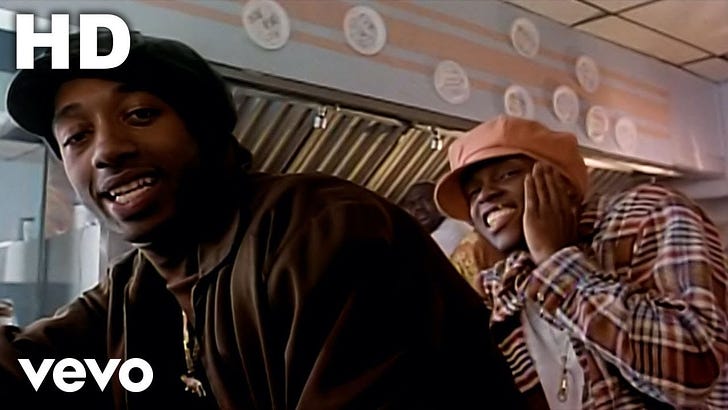I never knew how Moby Dick ended. This seems crazy, now that I do know. How is this not all anyone knows about Moby Dick? I knew something of the journey to get there — “Call me Ishmael,” of course, followed by long, ostensibly punishing passages about ship etiquette and knot techniques. I did not know that said passages were written with an almost psychedelic exuberance — that invented typologies of whales burst with invented adjectives; that the book, in its churning succession of short, hyper-specific chapters, has the ceaseless ebb of the high seas in its very structure; that the whole thing, you realize eventually, is more a piece of nonfiction composed as if it were cosmic horror, in which there are obviously characters but the primary character and protagonist is the concept and practice of whaling and that it contains within it all the terror and lust of human existence. The antagonist is not the whale. The antagonist is you, reader. You have been getting off too easy out here, “reading.” Moby Dick doesn’t show up until the final 20 pages, but they are about as good as pages get. You end up exactly as had been predestined: consumed.
If you are anything like me — and if you opened this email, you probably are, kinda — you read a lot about culture and technology. But there’s a bias among major outlets toward the technology. The concern is the internet, the platforms, the players. When culture is written about at all it's often with a sarcastic remove. But what I’m interested in is the culture, the artwork, the stuff. I’ve been working for awhile on a new project called EX along with some incredibly smart people because, somewhat selfishly, I want an excuse to read their thoughts on this subject. We were sharing a self-employed day of leisure (read: playing Elden Ring together) and generated so many ideas — about games, YouTube, why drum’n’bass sounds good on TikTok, and so on — that we wanted somewhere to put them. We settled on a weekly digest of findings: micro-stories, maybe even pitches, recommended with what we hope is both sobriety and sincerity. Eventually, other sends may stretch out into features, conversations, or variations on the digest format. We’re stoked. Subscribe here.
(As for 200 Words: It’s shelf-stable. Resting easy. It’ll be back when the people need it.)
A dark morning noise, passing through his sleeping mind—siren, garbage truck, something familiar but not grasped. In his dream drawn out, dispersed, a fog. He is on the fjords. Black rock and persistent green. A stormy sky, waves nearby. And the fog has its sound, almost a song. It hums and swells. Old paths wind about whorls and spin off. He follows one down a dip between hills to a structure of gray slabs stacked against each other. He enters and there are stone pews. The only light is from the entry and the arcane symbols inside, white halogens. In the pews are ghosts or holograms: flickering dead believers. In here he cannot hear the fog but faintly. The wraiths, they worship slowly. They pray. They stand and sing in unison, voices unintelligible, filtered and translucent tones. After their song they’re shut off, but their after-image remains, a bleak pulsing. He leaves. He walks to the edge of a fjord. He drops. He does not wake up immediately. The body of his mind floats on frothing waters for a while, then rises on the fog.
A classic "the label wanted a single so we knocked one out after the album was done" track except in this instance the artists, feeling The Moment Enter The Room, went absolutely Super Saiyan or something, just transcended their corporeal form on the beat, because good lord listen to it: it's hard to disentangle the horn sample from the drums, the high-end from the low, the hook from the verse, the slang from the cadence. What is this, a Television track? Something sinuous, imagistic: the way Geechi Suede and Sonny Cheeba string together nouns like they're coherent sentences, emerging of their own volition ("Harlem Buck Strut, freezing world heist, Hollywood"). Of the seven things I remember from college, one of them is this track playing in my apartment at like 3 a.m., the party over but a few stragglers still making their way out, someone probably rallying futilely in the kitchen, and a girl I never saw before or since rapped this track to me and then disappeared. My point is, when they talk in 12-step meetings about defining a higher power for yourself, what I think of is "Luchini."
This is what failure sounds like: tape hiss and radio drones and “rock music” presented as like a shattered framework, an old mind spasming cutely on a deathbed. The little organ trills at the end of “A Magazine Called Sunset,” for instance, or the spatial glam rock of nu-“Kamera.” Can you imagine Yankee Hotel Foxtrot opening with “a Wilco song” instead of “I Am Trying To Break Your Heart”? Well, now you can. It’s hard to separate this album from its famously troubled production process, its songs coming undone repeatedly and nearly taking the band with them, and listening to literally five different versions of it or even just the two different versions available on Major Streaming Platforms is seemingly an exercise in what-if. Or not. The album was always broken and ephemeral, full of half-remembered melodies and dreamlike segues. Walk back in and Tweedy’s voice has new burrs and oddities, each detail off, who put the chair in the dining room and why don’t the letters look right. That alliterative opening line of the original version is the codex: these are songs about language, the building blocks of meaning, and finding a kind of peace in their dissolution.
Loading more posts…












